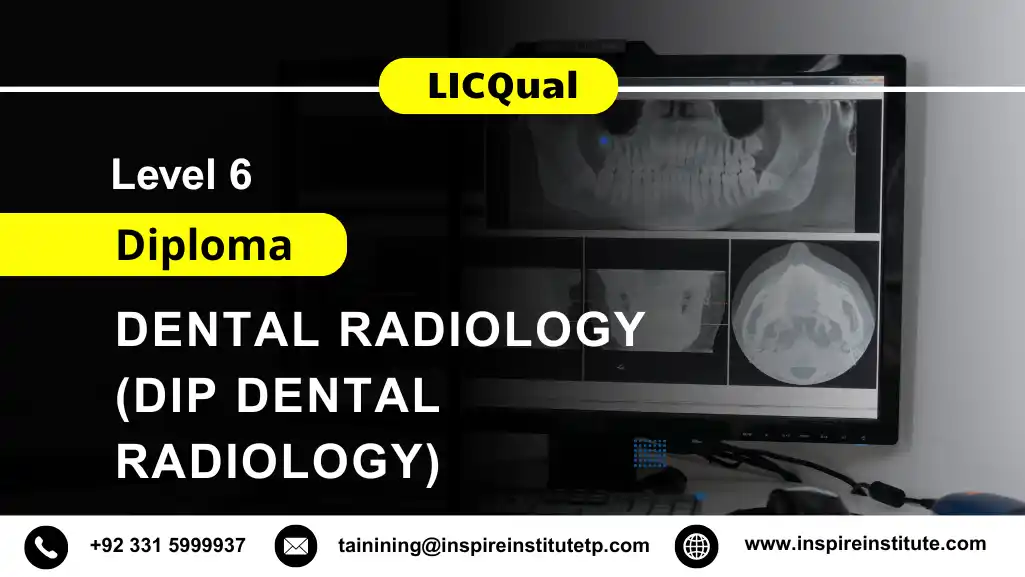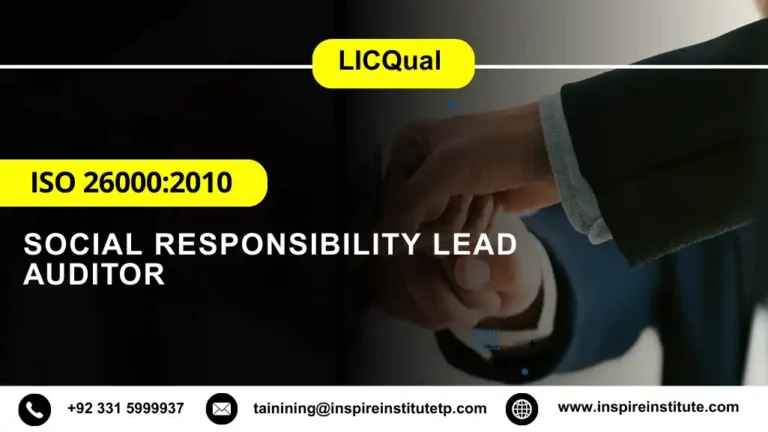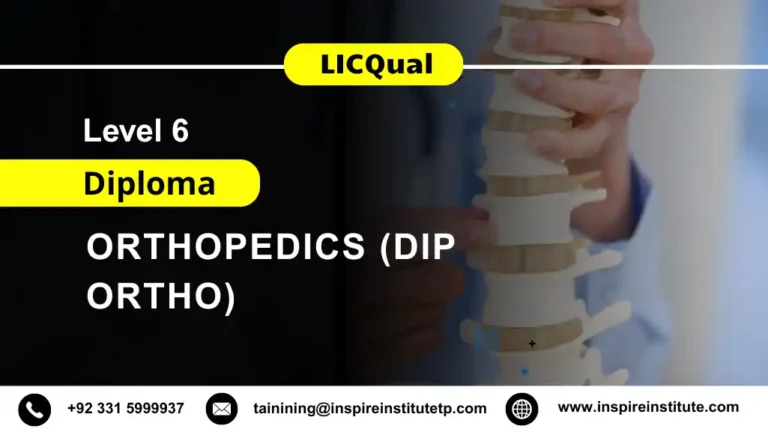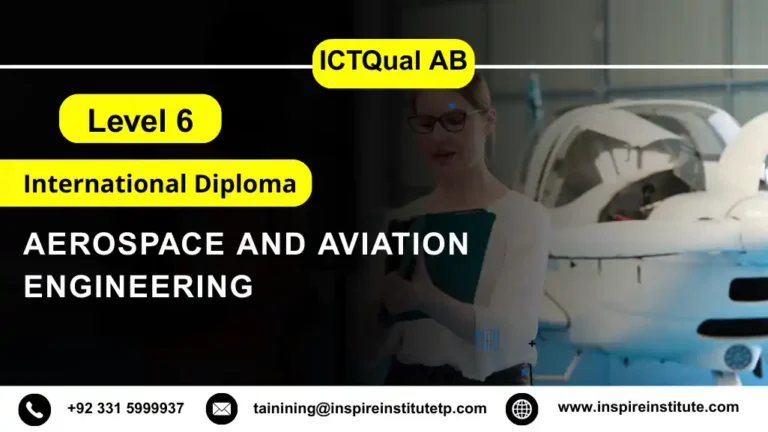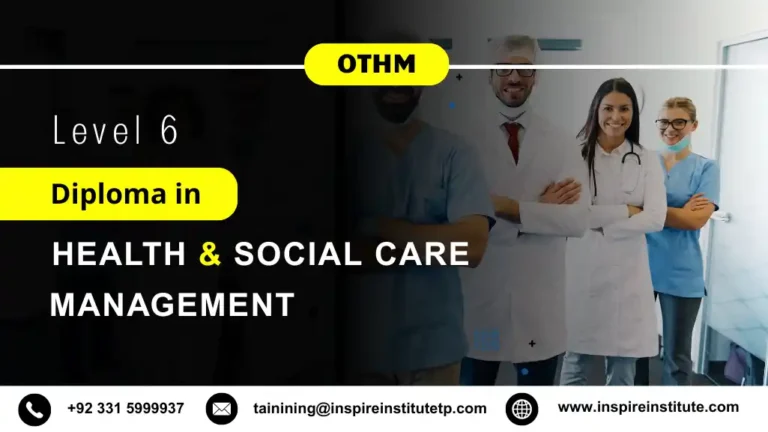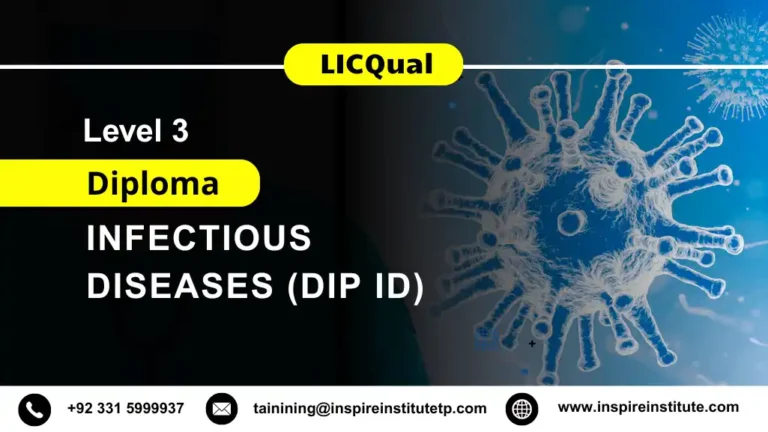LICQual Level 6 Diploma in Dental Radiology (Dip Dental Radiology)
The LICQual Level 6 Diploma in Dental Radiology (Dip Dental Radiology) is a UK-accredited programme that highlights the essential role of radiology in modern dentistry. Accurate imaging is the foundation of effective diagnosis, treatment planning, and patient care, making dental radiology a crucial area for clinical excellence. This diploma has been designed to help dental professionals develop the advanced knowledge and technical expertise needed to master radiographic techniques and interpretation.
This dental radiology diploma provides a comprehensive scope of study, covering intraoral and extraoral imaging, radiation safety, digital radiography, and advanced imaging modalities such as CBCT (Cone Beam Computed Tomography). By exploring the science, technology, and practical applications of dental imaging, learners gain the skills required to support high-quality, evidence-based dental practice while ensuring patient safety and compliance with professional standards.
A key strength of the LICQual Level 6 Diploma in Dental Radiology is its emphasis on applied learning. Participants will develop practical competence in radiographic positioning, image quality assessment, and diagnostic interpretation. The course also focuses on radiation protection protocols, enabling learners to meet legal, ethical, and clinical responsibilities with confidence. These skills ensure graduates are fully prepared for real-world challenges in clinical dentistry.
Throughout the Dip Dental Radiology course, learners are guided by evidence-based approaches that align with international standards of dental imaging. The programme highlights the integration of radiology with endodontics, implant dentistry, orthodontics, and restorative treatments, demonstrating its relevance across multiple dental disciplines. This interdisciplinary perspective prepares professionals to contribute to safer, more accurate, and more effective dental care.
As a UK-accredited qualification, the diploma offers global recognition, enhancing professional credibility and career opportunities. Graduates can pursue roles in dental practices, hospitals, specialist clinics, and academic institutions. It also provides a strong foundation for those aiming for postgraduate education or advanced clinical specialisation in dental radiology and imaging sciences.
The LICQual Level 6 Diploma in Dental Radiology (Dip Dental Radiology) is structured as a flexible, assignment-based programme, making it ideal for practising professionals balancing clinical duties with advanced study. By completing this diploma, learners not only expand their expertise but also contribute to improved diagnostic accuracy, patient safety, and treatment outcomes in modern dental practice. It is a valuable step forward for those seeking excellence and leadership in the field of dental radiology.
Why Choose this Qualification
The LICQual Level 6 Diploma in Dental Radiology (Dip Dental Radiology) is a UK-accredited qualification designed for dental professionals aiming to advance their expertise in diagnostic imaging and radiographic interpretation. This course blends theoretical knowledge with practical application to help learners understand radiation physics, imaging techniques, and interpretation skills that are vital in modern dental care. Participants explore intraoral and extraoral imaging, digital radiography, and advanced technologies such as Cone Beam Computed Tomography (CBCT), preparing them to deliver precise diagnoses and support effective treatment planning. Designed for flexibility, the diploma follows an assignment-based structure, making it ideal for practising professionals managing both clinical duties and advanced study.
Key Reasons to Choose this Qualification:
Specialist Knowledge:
Gain in-depth understanding of dental radiology, including radiation biology, radiographic anatomy, and image interpretation. Learners explore diagnostic imaging for conditions such as caries, periodontal disease, periapical pathology, trauma, and oral cancer. This foundation equips professionals to identify conditions accurately, evaluate treatment needs, and contribute to evidence-based patient care.
Practical Application:
Develop competence in applying advanced radiographic techniques through evidence-based practice. The Dip Dental Radiology course covers intraoral imaging, panoramic radiography, cephalometric techniques, and CBCT applications. Learners also gain practical skills in quality assurance, radiation safety, and dose optimisation, enabling them to deliver accurate, safe, and patient-focused radiographic services.
UK-Accredited Diploma:
Earn a UK-recognised qualification that validates advanced expertise in dental radiology and strengthens professional credibility. Accreditation ensures alignment with clinical safety standards and best practices, making this diploma valuable for dentists, dental hygienists, and radiology specialists who wish to expand their competencies or pursue academic and clinical career pathways.
Flexible Learning:
Benefit from a structured, assignment-based programme that enables learners to progress at their own pace. This flexible model is ideal for busy practitioners who balance patient care with academic study. By removing traditional examinations, the course ensures accessibility while maintaining high academic and professional standards.
Evidence-Based Training:
Explore modern approaches to dental imaging guided by scientific research, clinical protocols, and global best practices. The programme places emphasis on radiation protection principles, regulatory compliance, and the integration of advanced technologies in diagnostic imaging, ensuring participants are fully prepared for safe and effective practice.
Career Development:
Unlock pathways into roles within dental practices, hospitals, specialist clinics, and academic institutions. The LICQual Level 6 Diploma in Dental Radiology enhances employability by equipping learners with highly sought-after imaging and interpretation skills. It also provides a strong foundation for postgraduate education or specialist recognition in dental and maxillofacial radiology.
The LICQual Level 6 Diploma in Dental Radiology (Dip Dental Radiology) equips learners with the advanced expertise required to perform, interpret, and apply radiographic techniques effectively in clinical practice. By combining theoretical knowledge with applied learning, it enhances diagnostic accuracy, strengthens clinical decision-making, and supports improved patient outcomes. This diploma is particularly valuable for dental professionals seeking to elevate their careers, contribute to multidisciplinary care teams, and meet the growing demand for high-quality diagnostic imaging in modern dentistry. It represents an essential step towards achieving professional excellence in dental radiology.
Course Overview
LICQual UK Awarding Body
Average Completion Time:
6-24 Months
Study Units: 6 Units
Evidence & Assignment Based
Mandatory Units
Who Should Take This Course
The LICQual Level 6 Diploma in Dental Radiology (Dip Dental Radiology) is designed for dental professionals who wish to develop advanced knowledge and technical expertise in diagnostic imaging and radiographic interpretation. This UK-accredited qualification is ideal for practitioners aiming to enhance their diagnostic accuracy, improve treatment planning, and progress within the specialised field of dental radiology. It equips learners with in-depth theoretical insights and practical approaches to imaging techniques, radiation safety, and interpretation skills, supporting both professional growth and improved quality of care in modern dental practice.
This course is suitable for:
Dental Surgeons: Practitioners seeking to expand their expertise in radiographic imaging and diagnostic interpretation, enabling them to detect oral diseases, pathology, and structural abnormalities with precision and confidence.
General Dentists: Professionals wishing to strengthen their skills in selecting, performing, and interpreting radiographs to improve diagnostic accuracy, optimise treatment outcomes, and ensure safe radiation practices for patients.
Aspiring Specialists: Dentists preparing for higher-level postgraduate qualifications or specialist pathways in dental and maxillofacial radiology who want to establish a strong academic and clinical foundation in this field.
Dental Hygienists and Therapists: Practitioners aiming to broaden their role by developing competencies in dental radiography, radiation protection, and diagnostic support to contribute effectively within interdisciplinary dental teams.
Dental Academics and Educators: Professionals interested in advancing their knowledge of radiology to support teaching, research, or evidence-based training in the academic field of dentistry.
Healthcare-Oriented Learners: Individuals with a professional interest in oral health who wish to understand the principles, safety standards, and impact of dental radiology in improving patient care, early disease detection, and overall well-being.
The LICQual Level 6 Diploma in Dental Radiology (Dip Dental Radiology) is particularly valuable for dental professionals seeking to specialise in diagnostic imaging, strengthen their technical expertise, and achieve a UK-accredited qualification. By combining evidence-based learning with clinical application, this diploma supports career progression, professional recognition, and the ability to meet the growing demand for advanced dental radiology in modern dentistry.
Course Benefits
The LICQual Level 6 Diploma in Dental Radiology (Dip Dental Radiology) provides significant benefits for dental professionals seeking to enhance their expertise in imaging, interpretation, and radiation safety within clinical dentistry. By combining advanced theoretical knowledge with practical application, this diploma equips learners to carry out accurate diagnostic imaging, support effective treatment planning, and improve overall patient care. Designed as a flexible, assignment-based programme, it fosters professional development while maintaining clinical and academic excellence in modern dental radiology.
Key Benefits of the Course:
- Specialist Knowledge: Gain a comprehensive understanding of dental radiographic techniques, radiation physics, imaging modalities, and anatomical interpretation. Learn to identify oral and maxillofacial pathologies, interpret radiographs, and apply radiation safety principles in accordance with international standards.
- Practical Application: Develop competence in intraoral and extraoral radiography, panoramic imaging, cone-beam computed tomography (CBCT), and advanced diagnostic tools. Learners also strengthen skills in image optimisation, error correction, and digital radiology applications to support precise diagnosis and treatment outcomes.
- Recognised Qualification: Earn a UK-accredited diploma that validates advanced expertise in dental radiology and opens professional opportunities in dental practices, specialist clinics, radiology centres, and academic roles. Accreditation ensures compliance with global standards and best practices in diagnostic imaging.
- Flexible Learning Pathway: Benefit from an assignment-based study structure that allows learners to advance academically while managing clinical responsibilities. This flexible format is tailored for practising professionals balancing patient care with further education.
- Evidence-Based Training: Explore the latest research, protocols, and guidelines in dental radiology, ensuring safe, effective, and evidence-driven imaging practices. Learners are trained to adopt modern imaging technologies while upholding patient safety and diagnostic accuracy.
- Career Development: Expand career pathways as a dental practitioner with advanced imaging expertise, a step towards specialist training, or leadership roles in dental diagnostics and education. This qualification strengthens employability in both clinical and academic environments.
- Enhanced Patient Care: Contribute to better patient outcomes through accurate imaging, precise diagnosis, and safe radiographic practices. The ability to detect early-stage disease and assist in treatment planning enhances the quality of patient care and long-term oral health.
- Professional Growth: Strengthen technical proficiency, diagnostic reasoning, and interdisciplinary collaboration within dental teams. This diploma prepares professionals to play a key role in diagnostic imaging, improving clinical outcomes and patient safety.
The LICQual Level 6 Diploma in Dental Radiology (Dip Dental Radiology) equips dental professionals with advanced knowledge, clinical skills, and a UK-recognised qualification. It empowers learners to expand their professional capabilities, enhance patient outcomes, and pursue career progression while meeting the increasing demand for skilled radiology practitioners in dentistry.dontic practitioners in modern dentistry.sed care in modern dentistry.
Eligibility Criteria
The LICQual Level 6 Diploma in Dental Radiology (Dip Dental Radiology) is a UK-accredited programme designed for dental professionals who wish to enhance their expertise in diagnostic imaging, radiographic interpretation, and radiation safety within clinical dentistry. This assignment-based qualification combines advanced theoretical knowledge with practical application, making it ideal for dentists, dental therapists, and dental academics aiming to develop specialist skills in dental radiology. By meeting the entry requirements, learners ensure they are fully prepared to succeed in the programme and apply their knowledge confidently in professional practice.
Educational Background:
Applicants must hold a recognised dental degree such as BDS, DDS, or an equivalent qualification. Those with a Level 5 diploma in dentistry, radiography, or a healthcare-related field may also be considered. Equivalent international qualifications will be reviewed on a case-by-case basis to ensure suitability for the programme.
Professional Experience:
A minimum of one year of clinical experience in dentistry or dental radiography is recommended. Prior exposure to diagnostic imaging, radiographic techniques, or patient imaging is advantageous, though motivated dental professionals without direct radiology experience may also apply.
Age Requirement:
Learners must be at least 18 years of age at the time of enrolment, ensuring they possess the professional maturity, responsibility, and clinical judgment required for advanced training.
Language Proficiency:
Since the programme is delivered in English, learners should demonstrate proficiency in reading, writing, and communication. A minimum IELTS score of 6.0 or an equivalent qualification is recommended for non-native English speakers to ensure they can complete assignments and fully engage with course materials.
Technical Requirements:
Applicants should have access to a computer or laptop with a stable internet connection, as well as basic IT skills to manage digital resources, research, and assignment submission through online platforms.
Required Documents:
Submission of a valid ID or passport, proof of educational qualifications, and evidence of professional experience (if applicable) is necessary for registration. Additional documentation may be required for applicants presenting international qualifications.
The Qualification Process
LICQual Level 6 Diploma in Dental Radiology (Dip Dental Radiology) follows a structured pathway to ensure learners gain comprehensive knowledge, practical skills, and professional competence in community oral healthcare.
Step 1: Self-Assessment
Learners review the entry requirements to confirm eligibility. Candidates with a background in dentistry, oral health, or public health are encouraged to apply.
Step 2: Registration
Complete the registration process by submitting required documents such as proof of qualifications, a valid ID, and payment of enrollment fees.
Step 3: Induction
An induction session is conducted to:
- Verify learner eligibility and documentation.
- Introduce study materials, learning outcomes, and assessment procedures.
Step 4: Learning and Evidence Submission
Learners complete assignments, case studies, and practical exercises demonstrating competence in public health dentistry, community oral health assessment, preventive strategies, and program planning.
Step 5: Feedback and Revision
Assessors review submitted evidence and provide constructive feedback. Learners can revise and resubmit work to meet all required standards.
Step 6: Competence Validation
Final submissions are evaluated to confirm that learners have met all theoretical and practical learning outcomes.
Step 7: Internal Quality Assurance (IQA)
The IQA team reviews the assessment process to ensure accuracy, fairness, and compliance with international standards.
Step 8: External Verification (EQA)
External verifiers validate the authenticity and quality of learner achievements.
Step 9: Certification
Upon successful verification, learners are awardedLICQual Level 6 Diploma in Dental Radiology (Dip Dental Radiology) , demonstrating advanced proficiency in community oral healthcare and preparing them for professional growth in dental public health, preventive dentistry, and healthcare policy.

